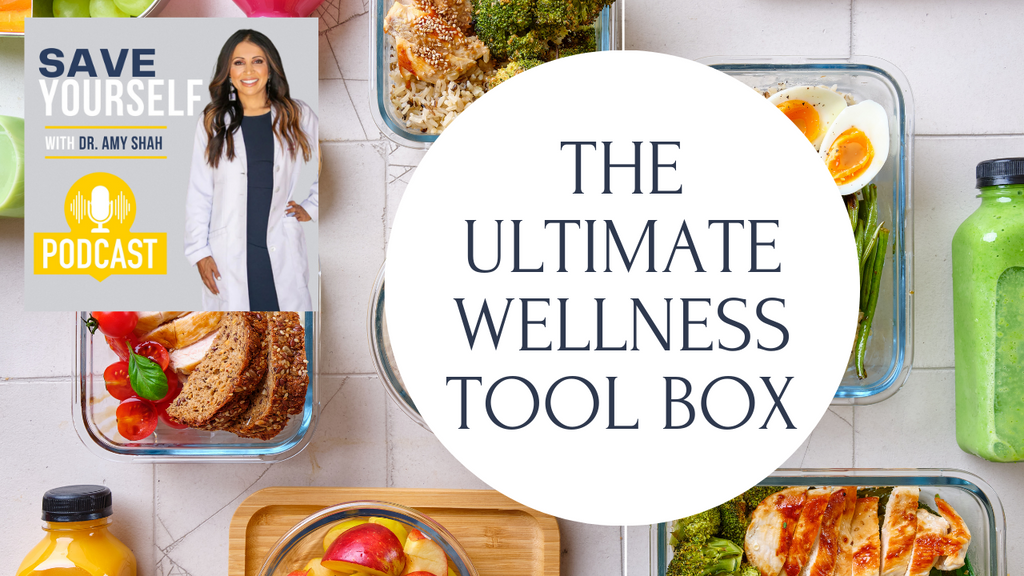But having some kind of movement in your life is an ideal way to improve that brain gut hormone connection. Another thing in your toolbox is protein. You want to get adequate protein. If you're someone who wants to optimize that brain gut hormone connection. Now, there's lots of debate on what should you be in a high protein diet? Should you be on a low protein diet? Should you be on. But that's not what I'm debating here. What I'm telling you is adequate protein for you. So that might look different than somebody else, but you don't want to be very low on protein.
Very low protein diets often lead to overeating. They lead to, especially in middle age, to accelerated muscle loss. People that have sarcopenia, so too little muscle on their bodies end up having more fractures. And this is not something that you want to do, especially as you get older. Also, there's a protein leverage hypothesis. This says that your body will keep wanting to eat until it gets a certain amount of protein. There's like a threshold. And so when you're eating a lot of snacks and you're not getting enough protein, your body keeps staying hungry and keeps craving more and more.
And so having adequate protein tells the gut bacteria to send signals to the brain that, hey, we got enough protein, time to stop the craving. So there is a lot of reasons to eat protein. Protein is something that the gut bacteria like. Of course, the protein is something that helps build muscle. So especially as we get older and we lose some of those hormones that are keeping our muscle mass active, we want to eat more protein and do more resistance training with that protein so we can be building muscle. Another thing in your toolbox is spices. You want to be having spices every single day. I think that's really an underrated way to improve your gut health and to improve your gut brain connection.
We know that things like turmeric and ginger and black pepper and nutmeg, these things affect your brain, and they can really optimize that gut brain connection. They act as prebiotics. So prebiotics are food again for the gut bacteria, and they act as antioxidants. Antioxidants are like, they catch all the free radicals in your body that are floating around and they help you antiage, basically. So you want to have a lot of spices in your life. Special spices like saffron are so amazing for your brain. But even simple spices like black pepper, garlic, turmeric, all of these are essential for good health. So you really want to be having more of those.
You want to start using some of these things in this toolkit, maybe by himself or in combination. There's so many other things like I didn't even mention, but supplements can be part of your toolkit. So the magnesium supplement, an omega three supplement, a vitamin D supplement, a vitamin K supplement can all be really great things. Things like vitamin C. It's best taken in food. So kiwi fruit is a great source of vitamin C. It has been shown to actually improve mood. Just kiwi fruit.
New study shows that. And so having fruits and vegetables and real foods in your toolbox is a great way to kind of improve your health. And remember, 30 different plant foods a week has been shown in studies to improve your health, to improve your gut bacterial diversity. And that includes seeds and nuts and spices. So having 30 plant foods in your toolbox can be really helpful as well. So these are some of the tools that you can use to improve your gut brain hormone connection. So the other tools that I didn't talk about are the non nutritional tools but they're still super important. The exercise, the mindset, work, meditation, sleep, sunlight.
I did mention sunlight but these are all things that you should have in your toolbox that can help you improve your gut brain hormone connection. And maybe the most important thing out of everything arguably is relationships. So improving your relationships around you, if someone is a vacuum and not a battery, probably want to spend less time if not zero time with them, the battery, the energizers, you want to spend more time with them intentionally and that's going to improve. That's going to be probably the biggest thing that's going to improve your gut hormone brain connection. So that's it. There's so many other things but this is a truncated toolbox toolkit for you with the most advanced tools that we know of to improve that brain gut hormone connection. Thank you so much for being here. Thank you for listening.
Stay tuned for another episode of save yourself.

